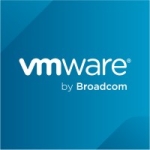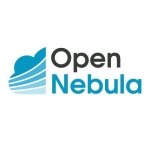What is most valuable?
The capacity planning is probably the biggest thing that I use and then I guess the monitoring alerting system and performance troubleshooting. Those are the top three.
It helps with troubleshooting the performance of different systems when customers complain or they say there's an issue. It helps us to narrow down and drill into seeing what's the root cause of the issue. It kind of gets in a good vicinity of that.
It has not helped us save on storage at all, and it has not helped us avoid outages, yet.
How has it helped my organization?
It's helped me plan capacity so that I'm always ahead of the curve. I'm actually deploying out systems and not delaying projects, because I have the insight of what resources that I'm short on or what resources I'm not short on. It's helped in that way. For capacity, that's been the biggest thing.
What needs improvement?
There are a lot more improvements that need to be done with the product. They've advanced from the last version, but there are many more things that should be there, and they're not. And they seem to be working on it, but until they get those things done, and I guess reduce the complexity of getting the system actually set up. As far as the initial setup, it is extremely easy, but then to configure and tailor it for your environment is very complex. Until they streamline that, I couldn't rate it any higher.
What do I think about the stability of the solution?
Until this week, it was very stable, but in the last week and a half, we've had some issues and we have a ticket open with VMware now to troubleshoot why there's an issue with it. And it's just random, that's the complaint I have about it. There's no way to actually troubleshoot or have insight when the product starts to go bad, when the system itself goes bad. Outside that, when it works, it works very well. But when it stops working, it's just all of a sudden. It's abrupt and there's no indication of why.
Buyer's Guide
VMware Aria Operations
January 2026
Learn what your peers think about VMware Aria Operations. Get advice and tips from experienced pros sharing their opinions. Updated: January 2026.
882,637 professionals have used our research since 2012.
What do I think about the scalability of the solution?
I'm not extremely large yet, and it has scaled fairly well. I've heard of other customers having to deploy many instances of it because of the global reach of their environment, or sometimes just the size of it. For me, I'd say it scales very well.
How are customer service and support?
VMware actually had to make some changes because of us, because when we deployed it, we found some bugs in it. I worked with the product developers and engineers that developed the product to help resolve that, get the proper sizing, and get it to where it's scaled out to support our environment.
Technical support has been very good. When I escalated up, they got me in touch with the people who actually write it and develop it directly, so I'm on with them at 1:00 or 2:00 in the morning on a Friday night/Saturday morning and so, they are very good. They're very helpful, they did the best to get in and find out what my issues were and get it resolved.
Which solution did I use previously and why did I switch?
I've been using vROps since before VMware bought them. I knew of Integron before, when EMC bought them, and then transferred it over to VMware. I have used VMTurbo, but I like vROps much better. vROps has more in-depth analytics and things in it, and the capacity portion of it is much better. There's only one or two things that VMTurbo might do just as well as vROps but, overall, I like to have all of my solutions in one single pane of glass, and that's what vROps provides me.
How was the initial setup?
I did the initial build. The setup was extremely easy, I feel. The original documentation about sizing was incorrect. That's why the system failed after I got it set up initially. Outside of that, the setup was extremely easy.
What other advice do I have?
Support is going to be the number one criteria when selecting a vendor like VMware for me because on day two, after I get it set up and the vendor is gone, I want to know what type of support I'm going to have going forward when issues arise and when it's in real-world activity.
If someone asks me for advice, I'll say, Do your homework for one, engage their TAM, their technical team, to help them size it properly and make sure that for what they're going to use it, they're actually scaling it and setting up a way to accomplish that. Also, get involved with the community, go online. There are so many other resources out there: VMware employees that actually have blogs, and plugins. They just make your life much easier.
Disclosure: My company does not have a business relationship with this vendor other than being a customer.

















